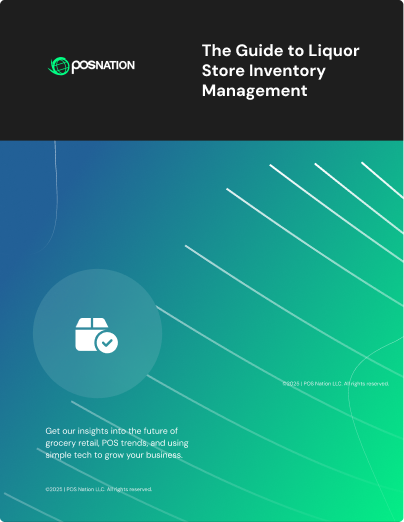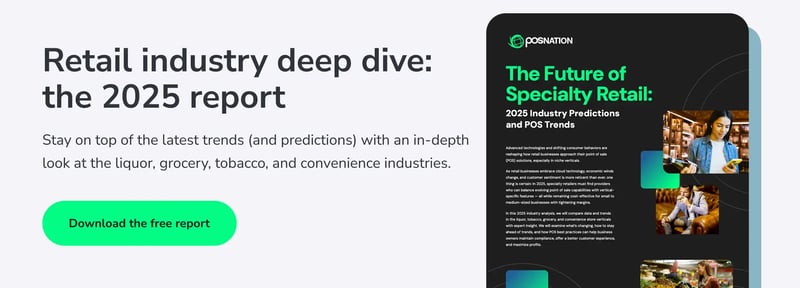Planning to open a liquor store in the Sunshine State?
Unfortunately, it takes more than hard work and a passion for tropical beverages — you also need to comply with Florida’s complex liquor laws.
Snags in the liquor licensing process are one of the number-one reasons for delayed grand openings and lost revenue, so we’ve created this quick guide to securing your Florida liquor license.
Let’s explore seven Florida liquor license requirements you need to meet and our top tips for a smooth launch.
1. Determine What Type of Liquor License You Need
Florida’s Department of Business and Professional Regulation (DBPR) offers multiple types of beer, wine, and liquor licenses — all with different requirements. These licenses fall into two main categories:
- Alcohol Package Sales License (APS): This license type allows grocery stores, liquor stores, and convenience stores to sell alcohol for consumption off-premise.
- Consumption on Premises License (COP): This license type permits bars and restaurants to sell alcohol for consumption on-premises.
Since you’re opening a retail liquor store, you probably need an APS license. Let’s take a closer look at the APS license types:
- 1APS: This license allows a store to sell only packaged beer for off-premise consumption.
- 2APS: This license allows a store to sell packaged beer and wine for off-premise consumption.
- 3APS: This license allows a store to sell all types of alcohol for off-premise consumption, including beer, wine, and spirits.
Understanding where your new business falls into these categories makes it easier to research and comply with Florida liquor license requirements.
2. Understand Florida’s Liquor License Quota System
Florida has a quota system for liquor licenses, so there can only be one full-service liquor store per 7,500 residents in a particular county.
This quota system means steep competition for 3APS licenses. To get yours, you have three options:
- Enter a lottery: The Florida DBPR conducts an annual public drawing for new liquor licenses, with the entry period generally beginning in August and closing in October. You’ll need to pay a non-refundable $100 entry fee and apply online. Keep in mind that thousands of people apply for fewer than 100 licenses each year.
- Purchase an existing license: If you don’t win the DBPR liquor license lottery, you can purchase a liquor license through an auction. This option is more secure but much more expensive, with most asking prices ranging from $500,000 to over $1 million.
- Open a beer or wine store: Since there’s no quota on the number of 1APS or 2APS licenses, you might consider opening a craft beer store or wine boutique instead.
Regardless of whether you secure your liquor license through the lottery or an auction, you still have to complete a formal application and prove that you meet all of Florida’s liquor license requirements.
3. Provide Your Personal Records
Next, it’s time to make sure that you’re personally eligible to apply for and hold a Florida liquor license.
The DBPR requires liquor licensees to be over 21 years old and prove “good moral character.” Florida officials are mainly concerned with beverage laws violations and felony convictions, so you may be ineligible to apply for a liquor license if you’ve committed similar crimes in the past five to 10 years.
If you have a criminal record, you may be required to submit arrest dispositions and other moral character evidence along with your application.
You should also be prepared to submit authorized fingerprints, your Social Security number, and personal financial records if you’ve received a loan to start your liquor store.
Related Read: How To Secure Liquor Store Financing [+ Top Solutions]
4. Gather Your Business Documents
Next, it’s time to provide critical information about your liquor store. Here are the documents to prepare before you submit your application:
- Federal employer identification number (EIN): This is how you’ll pay federal taxes and hire new employees. You can apply for an EIN online.
- Department of Revenue (DOR) clearance: This proves that your liquor store is a legitimate business that will pay taxes. You can file your LLC paperwork and start the process online.
- Right of occupancy: This is the lease or deed to your liquor store location, proving that you have the right to do business in the space.
- Sketch: This is a detailed diagram of your store that maps key areas like your entrance, exit, checkout counter, restrooms, and stockroom.
- Zoning permits: These documents include important information about your liquor store’s location and proximity to establishments like churches and schools.
- Contracts and financial agreements: You may be required to submit additional paperwork regarding your finances, loans, and partnerships.
Gathering these documents can take time, so we recommend starting as early as possible.
5. Budget for Florida Liquor License Fees
So, how much does a liquor license cost in Florida? The answer is that it depends.
Florida’s liquor license fee structure is based on a county’s population. Here’s a breakdown of the liquor license fee for each county size:
- Counties with a population of over 100,000: $1,365
- Counties with a population of over 75,000: $1,170
- Counties with a population of over 50,000: $643.50
- Counties with a population of under 25,000: $468
Florida requires liquor stores to renew their licenses and pay their fees annually, with a deadline of September 30th.
Related Read: ANSWERED: How Much Does a Florida Liquor License Cost?
6. Apply Online and Wait for Approval
You’ve organized your paperwork and set aside your license fee — now it’s time to start the application process.
Applying online through the DBPR’s website is your best option, but you can also mail or hand-deliver a printed application.
Florida doesn’t offer a specific timeline for application processing and renewal, but most applicants report that it takes anywhere from one to three months.
7. Comply With Florida’s Liquor Laws
The work doesn’t end once you receive your Florida liquor license — you need to keep it in good standing. That’s why we recommend making a rock-solid compliance plan before making your first sale.
Here are a few examples of Florida’s liquor laws:
- Age verification: Alcohol sales to individuals under 21 are illegal in all states, so it’s crucial to validate customers’ IDs for every liquor purchase.
- Tax laws: Florida charges hefty state excise taxes on each bottle you stock, and you’re required to charge customers the local sales tax upon purchase.
- Time limitations: Many Florida counties prevent the sale of alcohol on Sundays before a certain time. The Florida state government has also restricted alcohol sales during weather emergencies like hurricanes.
- Record keeping: Florida liquor stores are required to purchase labeled bottles from legitimate distributors only, so you may need to keep inventory records on hand in case of inspection.
Fortunately, the right liquor store point of sale (POS) system makes it easy to follow these regulations. Bottle POS is our top pick because of its security and sales-boosting features, like:
- Scanner-powered age verification
- Excise and sales tax management
- In-depth inventory management
- Automated purchase orders and receiving
- Built-in customer loyalty program
- AI-powered reporting and analytics
The right tools can help you feel confident in your compliance with Florida liquor license requirements — all while saving you time, simplifying your day-to-day operations, and increasing sales.
Start Your Florida Liquor Store Journey With Bottle POS
Ready to turn your Florida liquor store dreams into reality? We can help.
Bottle POS, our all-in-one liquor POS software, includes all the features you need to launch, manage, and grow your business while staying compliant with age verification and inventory laws.
Plus, our team of liquor store experts is available 24/7 to help you make the most of Bottle POS’ powerful features.
Start your Bottle POS journey today by using our Build and Price tool to generate an instant, custom quote.










 by Spence Hoffman
by Spence Hoffman

 by Brian Sullivan
by Brian Sullivan
